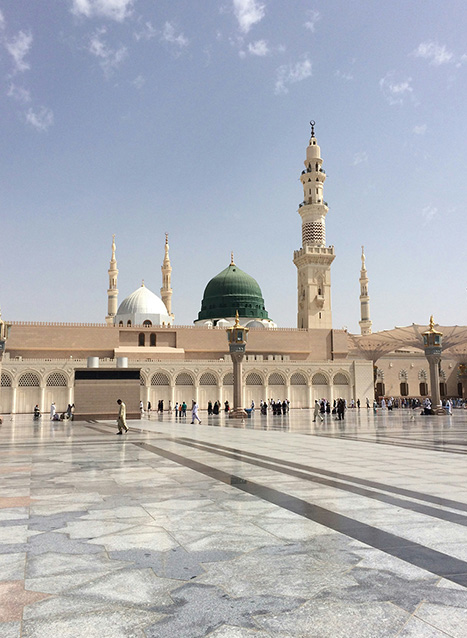Evacuations from High-Risk Locations Call +44 (0)1202 308810 or Contact Us →

Firearms Attack on Jeddah Palace and the Wider Terrorism Threat
10 Oct 2017
At 1515 local time on 07 October, a lone gunman opened fire on guards at the gate to the Royal Palace in Jeddah, Saudi Arabia. The gunman was a 28-year-old Saudi national, Mansur bin Hassan bin Ali al-Fahid al-Amiri. Two guards were killed and a further three wounded by automatic gunfire before other guards shot and killed the attacker. A search of the attacker and his vehicle after the attack yielded a Kalshnikov rifle, spare ammunition, and three Molotov-cocktail petrol bombs.
Key Points
- A lone gunman opened fire on guards outside Jeddah Royal Palace on 07 October.
- Three, including the gunman, were killed in the attack, three others were wounded.
- King Salman was not in residence; however, the location of the Crown Prince was not confirmed.
Situation Summary
Terrorism: At 1515 local time on 07 October, a lone gunman opened fire on guards at the gate to the Royal Palace in Jeddah, Saudi Arabia. The gunman was a 28-year-old Saudi national, Mansur bin Hassan bin Ali al-Fahid al-Amiri. Two guards were killed and a further three wounded by automatic gunfire before other guards shot and killed the attacker. A search of the attacker and his vehicle after the attack yielded a Kalshnikov rifle, spare ammunition, and three Molotov-cocktail petrol bombs.
The Saudi king was not present at the time of the attack, although unconfirmed reports suggest the Crown Prince may have been in residence.
Solace Global Comment
Investigations into this attack have so far shown that Mansur al-Amiri had no known link to any terrorist organisations, nor a criminal record, although some news outlets have attributed the attack to the Islamic State (IS). The attack on the Palace is the most brazen recent terror attack in Saudi Arabia, however attacks on security forces have occurred with relative frequency over recent years. In this respect, the attack does not stand out as a deviation from the normal tactics used by dissident groups within the Kingdom of Saudi Arabia. At least two fatal attacks have been conducted against security forces over the last three months, generally against officers patrolling in more remote areas.
The specific motive for the attack remains unclear, however Saudi Arabia is engaged in several domestic and foreign actions which have the potential to cause dissent and provide motivation for such an attack. Most recently, the government announced a series of relatively liberal measures, such as the intention to lift the ban on female drivers and to reduce the scope of the male guardianship laws. Whilst these may appear non-controversial to westerners, much of Saudi society remains deeply conservative; polling suggests that a substantial minority wish to see an expansion of the role of conservative Islam in society and more power for the religious police.
A more persistent factor which may have motivated the attack is the Kingdom’s support for the coalition against the Islamic State. Saudi Arabia is the home of Wahhabist Islam, which shares key elements with the version of the faith espoused by the Islamic State group. It is possible, therefore, that devout believers may be inspired to anti-state violence by the Kingdom’s ongoing cooperation with both the United States and Russia, both of which are heavily involved in the campaign to defeat IS. This possibility is further supported by a series of recent counter terror operations which Saudi police undertook on 05 October. The raids were intended to disrupt a cell, believed to be linked to IS, which was planning to conduct a series of suicide attacks in Riyadh. Whilst al-Amiri is not known to be linked to this cell, the operation demonstrates that IS has an active presence in the country and may have been able to radicalise him.
SECURITY ADVICE
TerrorismModerateDespite ongoing tensions in Saudi Arabia; indiscriminate mass casualty attacks, such as those which have struck Europe, have not taken place. Dissident or terror groups in the country presently focus on conducting targeted attacks against military or law enforcement targets. The direct risk to travellers is correspondingly low, however further attacks on security and law enforcement are highly likely and the these pose a threat to life to any bystanders in the immediate vicinity.
If caught in a terror situation, travellers are advised to RUN – HIDE – TELL – FIGHT.
RUN – If in a location where gunfire or explosions are heard, leave the area or building by any safe and available exit immediately.
HIDE – If unable to run away, find suitable cover or barricade yourself in a room. Remember to silence your phone and turn vibrate off.
TELL – Inform emergency services or alert someone who is able to do it for you. Once police arrive, comply with their instructions and do not make any sudden movements.
FIGHT – As a last resort, if confronted with a gunman, it is recommended to fight back by using the element of surprise by shouting, screaming and running fast at the attacker. If sheltered with others, convince them to do the same and rush the attacker all at once. Ensure the person entering the shelter is the attacker and not law enforcement.
Solace Global advises travellers that enhanced security measures are not required in Saudi Arabia at present. However, the use of airport meet and greet services, with a locally-vetted driver and vehicle are recommended. Travel tracking, supported by a live intelligence feed, will serve as an added measure to inform travellers of further developments. It is advised that all travellers avoid staying in proximity to government or military installations where possible as these are more likely to come under attack.